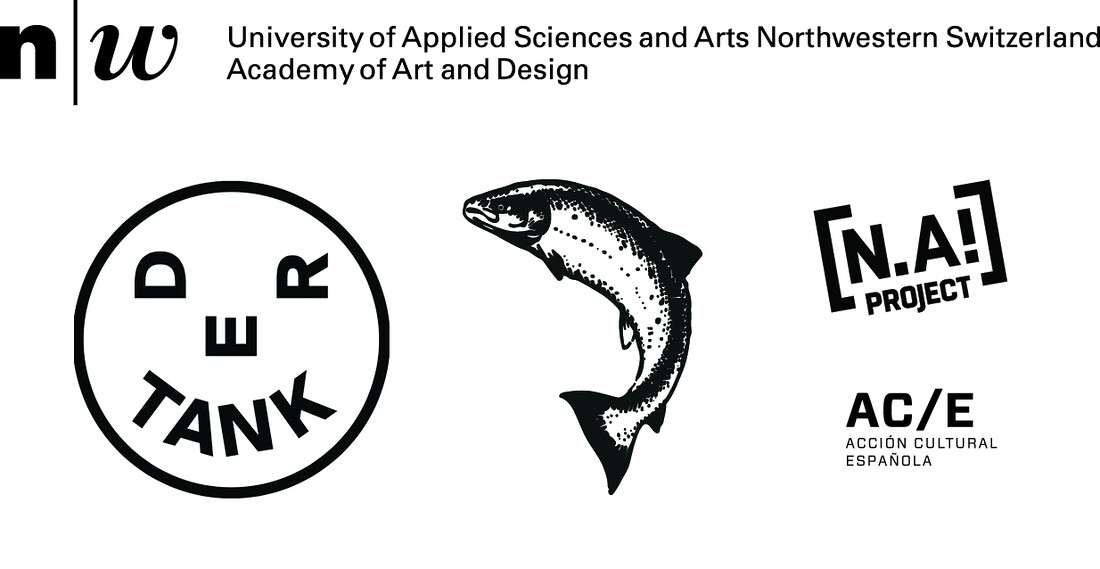Flotation Line
June 13–July 1, 2018
Freilager-Platz 1
Institute Art Gender Nature, Basel Academy of Art and Design FHNW
CH-4002 Basel
Switzerland
dertank.hgk@fhnw.ch
In The Gay Science, Friedrich Nietzsche calls, “Auf die Schiffe!” (Embark!):
“[W]hat is needful is a new justice! And a new watchword. And new philosophers. The moral earth, too, is round. The moral earth, too, has its antipodes. The antipodes, too, have the right to exist. There is yet another world to be discovered—and more than one. Embark, philosophers!”[1]
For centuries, and sadly still today, whales have provided income for whalers. Also for centuries, whales have constituted an enigma for scientists. Aristotle observed that whales and dolphins have breasts and lungs. Linnaeus was the first to associate their lives with ours with a change of name: mammals. Kant incorporated the deep seas—the whales—into his depiction of the experience of the sublime… So this call of Nietzsche already echoes a venture into a realm that implies the experience of the flotation line, the border that separates water from air, but also the force needed to cross, to go deep, and to breathe there. Whales breathe there; we could too. A quest for a new morality—in a Nietzschean sense—means a myriad of new unknown moralities, realms of the senses, orders of behavior, and futures for the creatures unknown till now.
In her new and large installation developed for der TANK in Basel, artist Teresa Solar places a line and an animal at its center. The line embodies the conditions imposed by water on all organic and inorganic elements that are not part of the sea but just on the sea. The animal, the whale, is both life and phenomenon. Life because it lives and has lived for centuries. Phenomenon because it makes the oceans spherical, like Earth, uniting air and water in their breathing.
The whale and the line coexist with some eyes, with some hands, with some strange structures functioning as a step, as if we could go up and down the line, the sea, and breathe as well. As if we could give hands to the whales to touch us, as if we could borrow those eyes to look through her eyes. Traditionally, we could call this work by Solar a “sculptural” group. It is impossible to isolate the elements. The main character—the whale—possesses the traits of naturalism and the relations among all the figures have expression, and dynamic as their point, to convey some force to us, to say something almost like the exclamation “embark!” In her work, many energies converge: the use of color, and figures expresses and moves beyond the more male casted conceptual tradition and its blankness towards life that has characterized sculpture in the preceding decade. Also, her subjects seek to communicate the emotional state in order to evoke a response, or a relation, already encapsulated in the Greek concept of pathos (“lived,” “experience”). Pathos, or the will to appeal to a person’s emotions, to gain the senses for an appreciation of life, a fundamental exercise in times of a total contraction of freedom.
[1] “[E]ine neue Gerechtigkeit tut not! Und eine neue Lösung! Und neue Philosophen! Auch die moralische Erde ist rund! Auch die moralische Erde hat ihre Antipoden! … Es gibt noch eine andere Welt zu entdecken - und mehr als eine! Auf die Schiffe, ihr Philosophen!” [Die fröhliche Wissenschaft, § 289.]
Curated by Chus Martínez
Curatorial Assistant Simon Würsten
Teresa Solar is an artist based in Madrid, Spain. She graduated with an MA in Cultural Studies from UEM (Universidad Europea de Madrid) in 2009. Solar’s work has recently been shown at Haus der Kunst Munich; Matadero Madrid; Fundación Marcelino Botín, Santander; Maxxi, Rome; General Public in Berlin; and Kunstverein München. Her work is also part of KölnSkulptur #9 in Cologne. She was a fellow at Akademie Schloss Solitude in Stuttgart and took part in the 2018 expedition “The Current” organized by TBA21-Academy.
der TANK is the exhibition space of the Art Institute at the FHNW Academy of Art and Design in Basel. This glass cube at the core of the Campus of the Arts hosts every year numerous exhibitions and projects by the Art Institute. Two or three times a year, it serves as a presentation space for new commissions by guest artists strongly linked to the teaching program of the Art Institute. These commissions coexist with an exhibition series presenting twice a year solo projects by former students of the Art Institute. der TANK additionally serves as an experimentation lab for students during seminars and workshops or to develop their own exhibitions and projects.
Hours
June 13–17, 2–6pm
As well as Saturdays and Sundays, 2–6pm
And by appointment info.kunst.hgk [at] fhnw.ch


